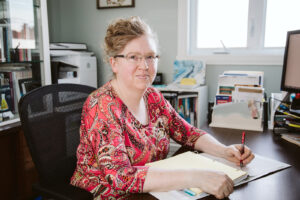Last month, we focused on how to launch a translation team by carefully choosing your translators, bilingual reviser and formatter/proofreader. Each of these roles involves editing; in the case of the translators, it refers to self-editing.
It is vital that our translations be edited before we publish them. If we are going to invest time into translating our nonprofit resources, we need to make sure that people will read them!
Here are the three quality aspects to consider when editing a translation, in order of importance:
- Fidelity: (Faithfulness) This means the translation matches the source text: no facts or details have been omitted, added or changed.
Why it’s important: Someone reading the translated document will not know if it says the same thing as the source text or not. Basically, they need to trust that the translator was conscientious and did a faithful translation, out of respect for the author and the content. If they notice something that does not make sense, they may lose confidence in the translation.
- Readability: This means the translation is pleasant to read: it uses appropriate words and expressions, and the words are in the most natural order.
Why it’s important: Have you ever started reading a book and found it difficult to follow? Maybe the sentences seemed awkward, or you had to read a sentence two or three times to understand it. Many readers just stop reading when this happens.
- Conformity: This means the document follows standard language rules, such as grammar, spelling and punctuation. It can also include conformity to a style guide and glossary.
Why it’s important: Writing is more demanding than speaking. When you are talking to someone, you can stumble over your words, correct yourself, say “Uh” and it’s all perfectly acceptable. Nobody knows whether you are good at spelling or punctuation when you are speaking. But there are more strict expectations of written documents; by respecting language rules, your nonprofit will develop a good reputation for quality translations.
Next week, we will look at various quality levels that can be established for translations, based on the way the documents will be used. We will find out the best editing process for each level. Stay tuned!
Have a great day!
Liane 🙂
